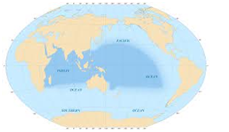Japan’s Role in Indo-Pacific geopolitics
Context: The visit by the Japanese Prime Minister, Fumio Kishida, to India, in March 2023, during which he engaged with his Indian counterpart, Narendra Modi, on global and bilateral issues, focused on cooperation between the G-7 and the G-20. Mr. Kishida also unveiled “Japan’s New Plan for a Free and Open Indo-Pacific” (FOIP)
Japan’s idea of Indo-Pacific
- Japan’s FOIP clearly shows that Japan wants to reinforce the idea that it has been the main champion of the FOIP concept and underlined that given the current geopolitical landscape with the ongoing Russia-Ukraine war, growing Chinese assertiveness in the South China Sea, East China Sea, the Indian Line of Actual Control and the Taiwan Straits, there is a need to give a fresh push and momentum to this concept.
- The New Plan for the FOIP lays stress on the need to uphold the rules-based order and respect each other’s territorial sovereignty.
Challenges before the Indo-Pacific
- Japan’s new policy focuses on the numerous challenges facing the Indo-Pacific such as the Ukraine war, food security, and cyber space in addition to issues such as ensuring the freedom of the seas, and connectivity among others.
- Another challenge which has been highlighted is the lack of a united stand on “what the international order should be” — the differing position of countries on the Russia-Ukraine war has brought this issue to the fore.
- For attaining this atmosphere of cooperation, ‘rule-making through dialogue’ should be encouraged. The fact that Japan under the FOIP should work alongside other like-minded countries in the region has been mentioned, with India being billed as an ‘indispensable’ partner.
Four pillars of cooperation
- There is a realisation that Japan needs to do much more in the region, and towards this, ‘four pillars of cooperation’ under the new FOIP have been outlined:
- Principles for peace and rules for prosperity;
- Addressing challenges in an Indo-Pacific way;
- Multi-layered connectivity
- Extending efforts for security and safe use of the “sea” to the “air”.
- In the first pillar, it has been pointed out that vulnerable countries usually suffer the most if there is an erosion in the rule of law. Therefore, Japan wants to engage in economic development programmes such as promoting the implementation of the G-20 Principles for “Quality Infrastructure Investment”.
- Under the second pillar, expansion of cooperation for the FOIP by incorporating realistic and practical projects in a wide range of areas, such as climate change, food security, global health and cybersecurity was stressed. Japan has been working for a long time on connectivity projects bilaterally with many countries in the Indo-Pacific region.
- Under the third pillar, the three areas identified for introducing more such projects are Southeast Asia, South Asia and the South Pacific/Pacific Island countries.
- Japan has made a new commitment of $100 million towards the Japan-ASEAN Integration Fund; it will promote the Bay of Bengal-Northeast India industrial value chain concept in cooperation with India and Bangladesh, and the new Palau International Airport Terminal project (an archipelago in the western Pacific Ocean) supported by Japan has also taken off.
- Under the fourth pillar, Japan will help in strengthening the capabilities of maritime law enforcement agencies in other countries.
| Practice Question
1. What is the Indo-Pacific? Evaluate the geopolitical progress in the area in last 2 decades? |




